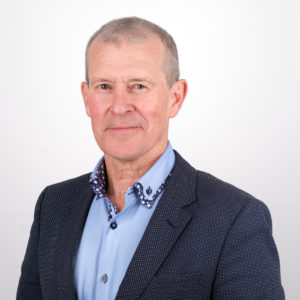The Middle East, particularly the Israel-Palestine conflict, remains one of the most enduring and complex challenges in international relations. As war rages in the Middle East and peace seems further away than ever before, understanding the multifaceted dynamics of this conflict is more crucial than ever.
Join us for our next IofC UK Insight: Is peace possible in the Middle East? This event will bring together a panel of esteemed experts who will share their perspectives on whether peace is achievable in the Middle East and what steps can be taken to move towards this goal. The event will be moderated by Dr Scherto Gill.
Guest speakers at the Panel Discussion include:
Dr Imad Karam
Dr Imad Karam is an award-winning peace activist. He is also the Executive Director of Initiatives of Change International, a global network of people of diverse cultures and backgrounds, whose mission is to inspire, equip and accompany change-makers in the pursuit of a just and peaceful world. Imad was born in Gaza City, Palestine, where his parents and siblings currently live. Imad is also a trustee of the Balfour Project, a UK charity that aims to contribute to peace with justice, security and equal rights for Palestinians and Israelis.
Dr Tony Klug
Tony Klug has written and lectured extensively about Israeli-Palestinian issues since the early 1970s when he first proposed the two-state idea as part of his doctoral thesis on the Israeli occupation of the West Bank. Tony’s writings have appeared in scores of publications in more than a dozen countries. Tony has been a senior advisor on the Middle East to the Oxford Research Group and a consultant to the Palestine Strategy Group and the Israeli Strategic Forum. He worked at Amnesty International for many years and headed the international development programme.
Assad Chaftari
Assad served as a senior intelligence official in the Christian militia during the Lebanese Civil War (1975-1990). In 1988 Assad met IofC and had a change of heart and has had no political commitment since 1994. He is now an Advisory Board member for Wahdatouna Khalsouna, a collection of NGOs working for civil peace in Lebanon. Assad co-created ‘Fighters for Peace’, an NGO of ex-civil warfighters working together for civil peace. In Since 2016, Assad has been a member of the Global Peace Builders Network and in 2018, Assad trained at Clingendael Institute about insider Mediation with UNDP.
Moderated by:
Dr Scherto Gill
Professor Scherto R. Gill is Director of Global Humanity for Peace Institute, University of Wales Trinity St David. She is also Senior Fellow at the Guerrand-Hermes Foundation, an international peace think-tank based in the Southeast of England; Life Fellow of the Royal Society of the Arts (FRSA), and a laureate of the 2022 Luxembourg Peace Award. She is Visiting Fellow and Associate Lecturer at the University of Sussex. Scherto directs the UNESCO Collective Healing Initiative, and she chairs the G20 Interfaith Forum‘s Education Working Group. Scherto is a board member of Spirit of Humanity Forum, and Rising Global Peace Forum.
This event will be hosted in London at IofC UK, SW1P 1RD. In-person spaces for this event are limited and we will be operating on a first come first served basis.
This event will also be livestreamed.
Qualities and Strategies of Peacemakers – May Online Course
Around 1/4 of all people worldwide live in countries affected by conflict.
With this in mind, it’s time we started investing more in peacebuilding.
Qualities and Strategies of Peacemakers (QSP-online) is a course of five short modules, each based on a film about outstanding peacemakers and acts as an introduction to an approach to peacemaking that was developed by Frank Buchman, the founder of what is today known as Initiatives of Change. To unpack these various approaches, the five films below have been selected. Those which have trailers available have been linked.
A film about Frank Buchman himself. The facilitated analysis focuses on the principal phases in his life, from founding a hostel for street kids in the early 1900s; to creating an international network for moral and spiritual renewal; to contributing to reconciliation between France and Germany, as well as between Japan and the Philippines after the Second World War, for which he was decorated by their respective governments.
‘For the Love of Tomorrow’
Set in the international context, it takes a particular example of Buchman’s approach, which took place in the immediate aftermath of the Second World War. The analysis after the film focuses on the roles of four people including Buchman, who worked together to help an embittered French politician become a significant agent for post-war reconciliation with the Germans.
Set in a community in northern Nigeria divided by religious conflict, this film shows how a change of heart in individuals led to initiatives which had a far wider impact. It relates how two former rival militia leaders came together to train imams and pastors to mediate in flash points across the country and beyond. The analysis focuses on how the two men reconciled, and what the strategies they used in helping to bring about reconciliation in two key towns.
Sequel to the previous film, it focuses on healing ethnic conflict. ‘Here we see the imam and the pastor in Kenya after serious post-election violence in 2007-8, applying the mediation approach that they developed in Nigeria. After the film, participants will analyse the mediation process step by step.
In the period after the end of Apartheid and the multi-party elections, the South African Defence Force killed a group of black youths. A black guerrilla commander ordered a revenge shooting in which a white girl died. Some years later, the girl’s mother finds an opportunity to confront the guerrilla commander, and they speak of the painful realisations for both of them as they begin to journey together. The analysis will focus on the steps each took on that journey, and what they did together as a result.
The films show examples of reconciliation after conflict in a variety of contexts: inter-national, inter-religious, inter-ethnic and post-colonial. After an introduction and viewing of the film, participants take part in an interactive analysis facilitated by Dr Omnia Marzouk and/or Peter Riddell (see bios below). The main aim of the course is to absorb as much wisdom as possible about the healing of broken relationships from these remarkable stories, and to reflect on our own peacemaking.
Additional Information
On the morning of each module, you will receive direct links to the Zoom meeting, the film itself, and note sheets designed for your personal use while watching the film.
To enhance the course’s effectiveness, your feedback is invaluable. Following the final module, we kindly request you to complete an online evaluation form for our internal improvement efforts. With your permission, we may use some of your insightful quotes for publicity purposes, highlighting the impact of our program.
Upon attending all modules and submitting the evaluation form, you’ll be awarded a well-deserved Certificate of Completion. If life’s demands make you miss a module or two – you’re welcome to participate in a future course to catch up and still be eligible for the certificate.
We highly value individual preferences and circumstances. While we understand that some participants might prefer not to appear on video or might have bandwidth constraints, we encourage you to consider keeping your video on as it enhances the interactive experience and fosters meaningful connections among participants.
QSP is for anyone over the age of 18, in particular those who want to respond to past or present instability in their countries. Click here for a time-zone converter to see what time the course will be running from where you are. It aims to enrich their understanding of peace-making and stimulate new ideas for ways forward.
QSP is free of charge, but voluntary donations to extend the programme are appreciated.
Caux Democracy Forum
The Caux Democracy Forum, taking place in Caux, Switzerland from 15th to 19th July 2024, aspires to inspire, equip, and connect individuals, groups, and organizations in the pursuit of stronger democracies and human rights across Europe and the world.
The Caux Democracy Forum is co-organised by Caux Initiatives of Change and Initiatives of Change International, in partnership with the Geneva Diplomatic Club for the Opening Ceremony.
The Caux Democracy Forum is part of a three-year programme running until 2026 which includes the Geneva Democracy Dialogues in May and October, regional events, and the Caux Democracy Forum from 8-12 July, 2025 and from 22 – 26 June, 2026.
More information is available on the IofC Caux Foundation website.
Vasu Dixit Collective – Exclusive London show for IofC UKOn Monday 22nd of April, the incredible Vasu Dixit Collective will perform an exclusive show at our London Office.
Some of us at IofC were lucky enough to see them perform at IofC India’s main site, Asia Plateau, this winter, and we are delighted to be hosting them in London! The band is currently on a UK and European tour and has offered to perform for us, free of charge.
The Vasu Dixit Collective (VDC) is the trajectory of composer and musician, Vasu Dixit’s, music and journey to find an artist within. The Collective is an ensemble of musicians and artists whose collaboration blends music. creativity and tradition.VDC plays Folk-Rock fusion music, both in Kannada and Hindi. VDC seeks to inspire the community and evoke compassion through collaborative approaches to making music.
Thanks to all of you who registered, the show is now fully booked but if you would like to hear about other upcoming events like this, please join our database
Other UK Tour Dates


Around 1/4 of all people worldwide live in countries affected by conflict.
With this in mind, it’s time we started investing more in peacebuilding.
Qualities and Strategies of Peacemakers (QSP-online) is a course of five short modules, each based on a film about outstanding peacemakers and acts as an introduction to an approach to peacemaking that was developed by Frank Buchman, the founder of what is today known as Initiatives of Change. To unpack these various approaches, the five films below have been selected. Those which have trailers available have been linked.
A film about Frank Buchman himself. The facilitated analysis focuses on the principal phases in his life, from founding a hostel for street kids in the early 1900s; to creating an international network for moral and spiritual renewal; to contributing to reconciliation between France and Germany, as well as between Japan and the Philippines after the Second World War, for which he was decorated by their respective governments.
‘For the Love of Tomorrow’
Set in the international context, it takes a particular example of Buchman’s approach, which took place in the immediate aftermath of the Second World War. The analysis after the film focuses on the roles of four people including Buchman, who worked together to help an embittered French politician become a significant agent for post-war reconciliation with the Germans.
Set in a community in northern Nigeria divided by religious conflict, this film shows how a change of heart in individuals led to initiatives which had a far wider impact. It relates how two former rival militia leaders came together to train imams and pastors to mediate in flash points across the country and beyond. The analysis focuses on how the two men reconciled, and what the strategies they used in helping to bring about reconciliation in two key towns.
Sequel to the previous film, it focuses on healing ethnic conflict. ‘Here we see the imam and the pastor in Kenya after serious post-election violence in 2007-8, applying the mediation approach that they developed in Nigeria. After the film, participants will analyse the mediation process step by step.
In the period after the end of Apartheid and the multi-party elections, the South African Defence Force killed a group of black youths. A black guerrilla commander ordered a revenge shooting in which a white girl died. Some years later, the girl’s mother finds an opportunity to confront the guerrilla commander, and they speak of the painful realisations for both of them as they begin to journey together. The analysis will focus on the steps each took on that journey, and what they did together as a result.
The films show examples of reconciliation after conflict in a variety of contexts: inter-national, inter-religious, inter-ethnic and post-colonial. After an introduction and viewing of the film, participants take part in an interactive analysis facilitated by Dr Omnia Marzouk and/or Peter Riddell (see bios below). The main aim of the course is to absorb as much wisdom as possible about the healing of broken relationships from these remarkable stories, and to reflect on our own peacemaking.
Additional Information
On the morning of each module, you will receive direct links to the Zoom meeting, the film itself, and note sheets designed for your personal use while watching the film.
To enhance the course’s effectiveness, your feedback is invaluable. Following the final module, we kindly request you to complete an online evaluation form for our internal improvement efforts. With your permission, we may use some of your insightful quotes for publicity purposes, highlighting the impact of our program.
Upon attending all modules and submitting the evaluation form, you’ll be awarded a well-deserved Certificate of Completion. If life’s demands make you miss a module or two – you’re welcome to participate in a future course to catch up and still be eligible for the certificate.
We highly value individual preferences and circumstances. While we understand that some participants might prefer not to appear on video or might have bandwidth constraints, we encourage you to consider keeping your video on as it enhances the interactive experience and fosters meaningful connections among participants.
QSP is for anyone over the age of 18, in particular those who want to respond to past or present instability in their countries. Click here for a time-zone converter to see what time the course will be running from where you are. It aims to enrich their understanding of peace-making and stimulate new ideas for ways forward.
QSP is free of charge, but voluntary donations to extend the programme are appreciated.
Breaking Boundaries: The Afghan Footballer and the Iraqi Archaeologist; Two Women’s Quest for Freedom
This International Women’s Day, join Initiatives of Change UK and Creators of Peace UK in hearing from two women and their inspiring quests for freedom.
Two incredible guest speakers, Kawser Amine and Rana Ibrahim, will join host, longterm IofC member and Creators of Peace Facilitator, Mary Lean in an online conversation and Q&A.
This event will take place on Zoom, beginning at 15:00 GMT. Please see a time zone converter if you plan to attend overseas to ensure you have the correct time.
Please note, that there is a content notice for possible discussion of war, displacement and violence against women.
Caux Intergenerational ForumIt is easy to lose ourselves and each other in all the things that are going wrong in the world today – so this is an invitation to a dialogue across cultures and generations about what really matters to us all.
The simple philosophy of Initiatives of Change (IofC) is that if you want to change anything, you need to start with yourself. It is as true in a family as it is on the international level of relationships.
Given the current wars and conflicts threatening community peace and solidarity cross borders, it is with a sense of urgency that the young and the old – children, students, professionals, families, pensioneers, and grandparents – are invited to come and take time to listen and to share, to reflect and to discuss.
This event is organised by the Nordic Initiatives of Change team, in partnership with the Caux Initiatives of Change Foundation.
More information is available on the IofC Caux Foundation website.
IofC Insight: From the Personal to the Global; A Conversation About Change with IofC’s Mike Kane MP and Denis NowlanFrom the Personal to the Global; A Conversation About Change with IofC’s Mike Kane MP and Denis Nowlan.
Join our new Executive Director, Denis Nowlan, in conversation with our newly appointed Chair of Trustees, Mike Kane MP on Tuesday, 7th May 2024, 6:00pm – 7:30pm.
This is a unique chance to hear about how their faith has helped them through their lives and careers and about their vision for Initiatives of Change UK.
Spaces are limited, so please register your interest to confirm your spot NOW!
For guests who will not be able to attend due to rail network disruptions, this event will also be live-streamed. Please see the Zoom link details HERE.
For 33 years, Denis worked for the BBC, before coming to join IofC UK in March 2024. As a Senior Producer in BBC Religion and Ethics, Denis made award-winning programmes for Radios 2, 3 and 4, BBC One and online. In 2002 Denis moved into senior management as Network Manager for Radio 4, where his remit ranged across every aspect of network policy and practice. In 2015, in addition to his role at Radio 4, Denis took on similar responsibilities for BBC Radio 3 and the Proms before departing in the summer of 2023.

Denis Nowlan
A former primary school teacher, Mike began his political career as a Councillor for Manchester City Council in 1991, overseeing the investment strategy that led to Central Library’s transformation. He was the national Chair of Movement for Change from 2010 to 2013 and Acting Chief Executive of the organisation from July 2013 to February 2014. In February 2014, Mike was elected as a Member of Parliament for his home constituency, Wythenshawe and Sale East. In April 2020 Mike became Shadow Minister for Aviation, Maritime, & Security. Mike has been a trustee with IofC UK for three years and has just recently been appointed Chair of Trustees for IofC UK.

Mike Kane
Israel/Palestine: in Search of Truth & Justice
THIS EVENT IS CURRENTLY AT FULL CAPACITY FOR THOSE WISHING TO ATTEND IN PERSON AT 24 GREENCOAT PLACE.
YOU CAN REGISTER TO ATTEND VIA ZOOM ONLY.
For those who are looking for a deeper context and to gain more clarity about the current nightmare in Israel and Palestine, we are privileged to host Dr Peter Shambrook, who has recently published a major work on the background of Britain’s involvement in the conflict in his new book Policy and Deceit. Britain and Palestine, 1914 – 1939.
‘The most comprehensive and incisive exposure of the origins of the British betrayal of Palestine.’ – Ilan Pappe (Israeli historian and political scientist)
Our January National Outreach Meeting is in partnership with The Balfour Project. Mike Kane, MP for Wythenshawe and Sale East and IofC UK Trustee, will host the event, joined by Dr Peter Shambrook and Sir Vincent Fean and Mike Scott-Baumann, trustees of the Balfour Project.
Dr Peter Shambrook is an independent scholar and historical consultant to the Balfour Project, which works to advance equal rights for all in Palestine/Israel. He holds a PhD in modern Middle Eastern history from the University of Cambridge. Throughout his career, he has held several research positions, including at Durham University and the Centre for Lebanese Studies in Oxford. He worked full-time with MRA (now known as IofC) from 1969 to 1987 before he became a school teacher.
His book, Policy and Deceit. Britain and Palestine, 1914 – 1939, is a must-read for anyone interested in the history of the Israel-Palestine conflict, revealing a hidden chapter of British deceit and shedding light on the ongoing tensions in the region. This book is available to buy from our online shop HERE
This event will be held at the IofC UK Head Office, 24 Greencoat Place, London SW1P 1RD. It will also be available to watch live via Zoom.
For those attending via Zoom, please join from 5:30pm to 7:30pm.
REGISTRATION CLOSED: Creators of Peace – Online Peace Circle
Registration is now closed for this Peace Circle. If you are interested in attending one in the future, please email Creators of Peace UK at creatorsofpeace.uk@iofc.org
Peace Circles are the core component of the Creators of Peace programme.
This eight-week online peace circle will take place on Zoom on the following Tuesdays from 4:00pm – 6:00pm GMT. It is essential to attend all the sessions.
The Peace Circle is designed to flow from one gathering point to another so participants need to commit to all the sessions. The course is unique in that it also offers an opportunity for each participant to share their own story, which allows for self-empowerment and development of one’s peacemaking skills.
Peace Circles are facilitated in the style of a ‘talking circle’, where all voices are heard respectfully, and a safe space is established at the beginning of each session to allow individuals to explore diverse perspectives.
Peace Circles are free to join. If you are joining us from an organisation or business please consider donating. Peace Circles are subsidized by donations, grants and volunteers which allows them to continue to be delivered without charge.
At the end of a Peace Circle, we encourage contributions from participants as a way to ‘pay it forward’ so we can continue to offer all women the opportunity to participate in exploring their role as a peace creator.
Peace Circles are only open to women, including trans women, as a way of creating a safe space. Thank you for your respect and cooperation. Please note that all sessions are held on Zoom – we advise that you ensure your Zoom application, whether on desktop, browser, or mobile device, is the most current version. Please see Zoom Updates for more details.